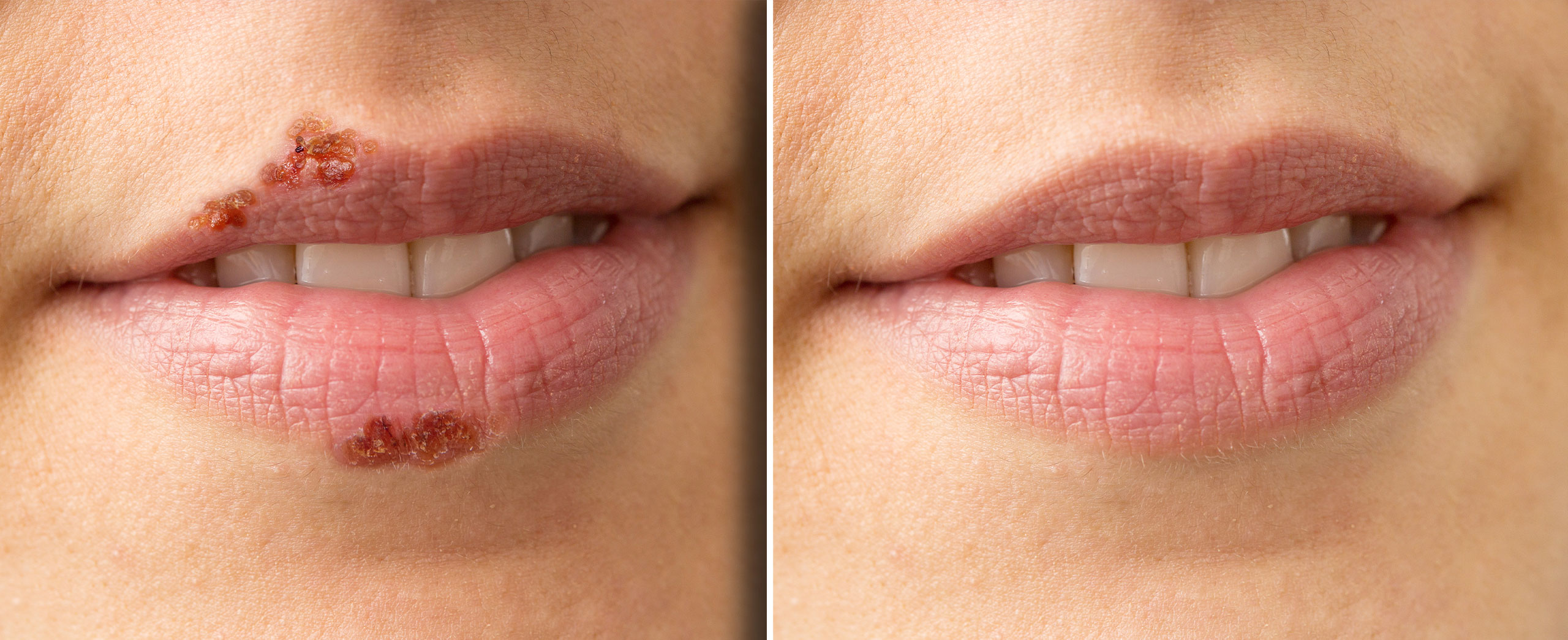Cold Sores: Tips for Prevention, Treatment, and Relief
Cold sores, caused by the herpes simplex virus (HSV-1), can be an unwelcome addition to winter’s already harsh conditions. Cold, dry air combined with seasonal stress and weakened immunity often makes this time of year particularly challenging for those prone to outbreaks. But with a better understanding of cold sores, you can manage and prevent them more effectively.
What Are Cold Sores?
Cold sores are small, painful blisters that typically appear around the lips or mouth. They’re caused by HSV-1, a virus that lies dormant in your body after the initial infection. HSV-1 is typically contracted through close personal contact, often during childhood. Once infected, the virus remains in the body for life, residing in nerve cells and reactivating under certain conditions.
Certain triggers can reactivate the virus, leading to an outbreak. Common triggers include:
- Cold Weather: Dry, cracked lips or nasal congestion from winter colds can irritate the skin, increasing the risk of flare-ups.
- Stress: Physical or emotional stress weakens the immune system, making it easier for the virus to reactivate.
- Illness: Colds, the flu, or other infections common in winter and can trigger outbreaks.
How Contagious Are Cold Sores?
Cold sores are highly contagious, especially during the blistering and “weeping” stage when fluid-filled sores can easily spread the virus. Transmission occurs through direct contact (like kissing) or sharing items such as utensils, lip balm, or towels.
Interestingly, HSV-1 can also spread through asymptomatic shedding—when the virus is active, but no visible sores are present—though this is less common.
Treating Cold Sores: What Works Best?
While there is no cure for HSV-1, early and effective treatment can shorten outbreaks and minimize discomfort.
Medications:
- Prescription Antiviral Creams: Medications like acyclovir or penciclovir can reduce the severity of outbreaks if applied at the first sign of tingling or itching.
- Oral Antivirals: For frequent or severe outbreaks, pills like valacyclovir, acyclovir, or famciclovir can be very effective.
Over-the-Counter Remedies:
- Docosanol Cream: This non-prescription option can speed up healing.
- Lip Balms with Sunscreen: Protecting lips from UV exposure prevents irritation and reduces the likelihood of future outbreaks.
Home Remedies:
- Cool Compress: A cold, damp cloth applied to the sore can ease pain and reduce swelling.
- Aloe Vera or Petroleum Jelly: These help keep the area moisturized and promote healing.
- Pain Relievers: Over-the-counter medications like ibuprofen or acetaminophen can help manage pain and inflammation.
Preventing Cold Sores in Winter
Prevention is key to managing cold sores. A few simple strategies can help reduce your risk of outbreaks:
- Keep Lips Hydrated: Use a lip balm with SPF to protect against UV rays and harsh winter air.
- Boost Your Immune System: Eat a nutrient-rich diet, exercise regularly, and prioritize rest to keep your immune defenses strong.
- Manage Stress: Practice relaxation techniques like yoga, meditation, or deep breathing.
- Avoid Triggers: Protect your skin from windburn with scarves and avoid prolonged sun exposure, even in winter.
- Practice Good Hygiene: Wash your hands frequently and avoid sharing personal items like razors or towels to reduce the risk of spreading the virus.
Bonus tip: Use a humidifier. Winter’s dry indoor air can dehydrate your skin and lips, increasing your risk of cracks and irritation that can lead to outbreaks.
When to See a Dermatologist
Most cold sores heal on their own within 7-10 days, but consider consulting a dermatologist if:
- Outbreaks occur frequently or are particularly severe.
- Cold sores spread to other areas, such as the eyes.
- Pain or discomfort interferes with daily activities.
A dermatologist can develop a customized treatment plan that may include prescription medications or advanced therapies to help you better manage outbreaks.
The Bottom Line
Winter may be prime time for cold sore flare-ups, but proactive care and effective treatments can keep outbreaks under control. By staying mindful of your triggers, practicing good hygiene, and boosting your immune defenses, you can reduce the frequency and severity of cold sores this season.
If you’re struggling with frequent or severe cold sores, reach out to a dermatologist for expert guidance. Together, we can create a plan to help you feel your best all winter long. Book an appointment on our website or give our office a call at 203-538-5682 to schedule your checkup/screening.

